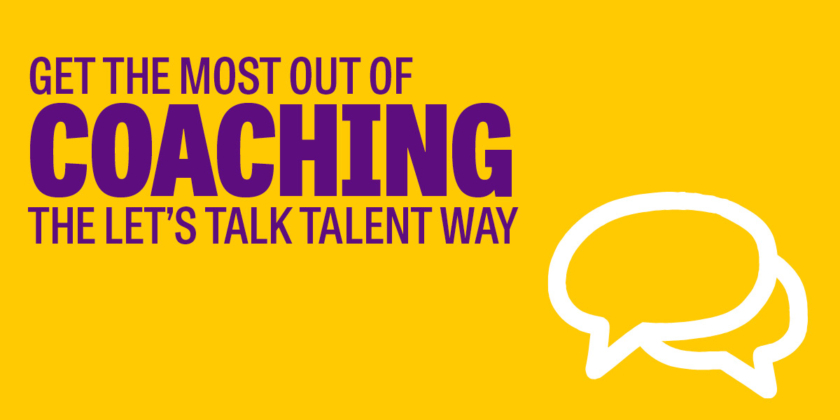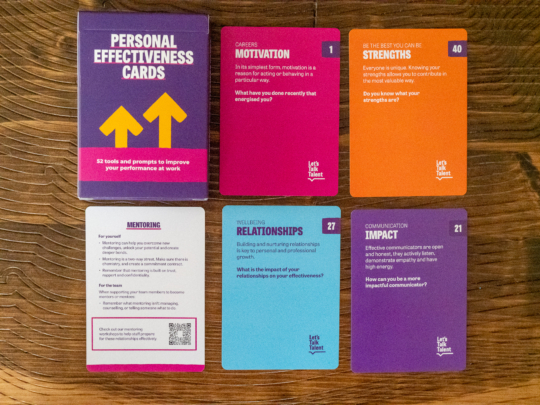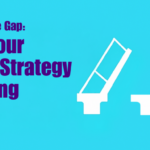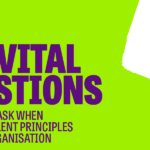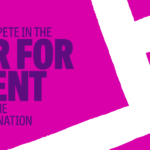When and how to choose a coach according to your needs
Higher performance, personal development, increased wellbeing… The benefits of coaching have already been well established. However, there are still plenty of misconceptions around this powerful development tool. Many businesses believe coaching is expensive, and therefore best reserved for the leadership team or C-suite.
At Let’s Talk Talent (LTT), that’s not how we think.
We believe everyone has talent, and coaching should be accessible enough to help anyone unlock their full potential. We also believe that it shouldn’t be reserved just for career development. Coaching can be used in many situations, to overcome very specific challenges. Over the years, we’ve developed a targeted approach to coaching which has been proven to boost organisational performance through selected bespoke interventions.
Here’s how we do it, the LTT way.
Getting the most out of coaching: the LTT approach
Practical expertise over methodology
Most people assume that coaching is a transferable skill. No matter the industry, any coach could help an individual reach their professional goals by applying the right methodology to each situation. “At Let’s Talk Talent, we don’t believe in cookie-cutter formulas that just work with everyone. We’re much more agile than that,” says Jo Taylor, MD and Founder at LTT. After all, without knowing an industry, a specific job or a particular situation, can a coach really be effective?
For us, practical knowledge is key. To ensure we don’t try to fit everyone into the same box, all our coaches are practitioners and adhere to a mentoring-focused approach. Before we begin a coaching relationship, we get to know each coachee and ensure we match them with the right industry experts. Our panel of coaches include marketing directors, financial professionals and even ex-army officers, all of whom bring a more hands-on approach to the table.
“While it’s important to guide clients so they reach a solution on their own, being able to understand their particular context or situation can lead to much more impactful results. For example, an experienced coach may be aware of specific training programmes, or be able to recommend a charity offering support for employees going through a difficult situation,” adds Jo. The result? Employees are able to turn these insights into actionable results, fast.
For more information on the difference between coaching, managing and mentoring, have a look at our article.
Does this mean we put methodology aside? Not at all. LTT still uses the same framework and applies the same rigour to the process. Every coaching programme is structured, and sessions are framed by clear objectives and defined steps. We simply believe in staying agile and hitting the ground running, which is what makes our Coach on Demand service so effective.
Focussing on accessibility
If you know us, you’ll know that one of our core beliefs is that everyone has talent. It’s just a matter of unlocking it. That’s why pricing shouldn’t be a barrier to coaching. “Managers in particular are a key group to consider when it comes to coaching. They have a huge impact on their team, are often undertrained and buried under tons of admin, leaving them time-poor and unable to effectively manage their teams. And as we know, people don’t leave bad jobs, they leave bad managers,” adds Craig Howells, Sales & Operations Director at LTT. Giving them appropriate support, particularly if they have recently been promoted to a leadership position, is paramount.
Technical experts are also an important demographic which shouldn’t be neglected. Their incredibly specialised fields can sometimes make career development opportunities difficult to identify. Organisations who do not support their technical expert’s progression through coaching (or any other learning and development means) could find themselves experiencing a talent drain sooner rather than later.
Have a look at our succession planning for technical experts articles for more tips on how to retain your specialists.
Opening up this resource to a wider group of people could be a way to propel your organisational performance forward, and selecting a coaching provider with a price point which allows you to reach more than just your C-suite should be your first step.
When to use coaching for optimal results
Contrary to popular belief, career development isn’t the only outcome of a coaching programme. There are many situations when one-to-one sessions with an experienced coach can help employees overcome a challenge or simply be the best version of themselves at work.
- Onboarding.
The first 100 days of a person’s professional life with you are a crucial period, and making sure staff have all the support they need can make all the difference when it comes to staff retention. - Improving mental health.
Staff wellbeing is not just a buzzword: it directly affects performance. For employees coming back to work after a long absence and navigating a return to full-time work after a period of maternity or sick leave, or those with new caring responsibilities, dealing with the new reality can be tough. Coaching can help smooth the transition and get people back on their feet, motivated and energised.
Have a look at how we developed a highly effective coaching programme for a global healthcare provider hoping to support new parents as they transitioned back to work. - Negative workplace culture.
Some people may experience bullying, lack confidence, or suffer from burnout, and talking to a manager about it may not always be an option. Here, a neutral, external coach can achieve beautiful results. It’s also worth noting that while coaching sessions are confidential, we make a point of providing anonymised insights back to the organisations so leaders can course correct and foster a positive work environment. - Personal development.
360 feedback can bring up some areas for development. Whether staff need to acquire a new skill such as time management, personal effectiveness or public speaking, coaching is the way to get it done. - Conflict management.
Team going through a storming phase? Again, without a neutral, external party, this can be hard to navigate. An experienced coach should be able to identify the underlying issues and suggest the right course of action. Team coaching should also be considered in this situation. - Getting unstuck.
Sometimes, we can just get stuck. Whether an employee needs to develop a growth mindset, lacks confidence or can’t quite seem to get out of a rut, it could be that some gentle guidance would be beneficial.
- Career development.
Yes, of course! While coaching isn’t reserved for career development, it is still one of its main raison d’être. Career is one of the three motivation-generating factors for employees, and the first question our coaches get asked during a session is often: “What’s my next step?” While our Coach on Demand service has resulted in many promotions, our proudest achievement remains showing dozens of coachees the art of the possible. “When it comes to progression, we like to think further than the seat directly above. We explore sideways steps, internal moves, big projects and think of new ways for people to challenge themselves,” says Jo.
Choosing a coaching programme: don’t settle for the status quo
When it comes to coaching, most organisations expect to buy a generic programme that costs so much only their leadership team benefits from it. At LTT, we don’t believe you have to settle for the status quo.
A good coaching programme, such as our Coach on Demand service, should adapt to your people, not the other way around. And to be as effective as possible, it should also be opened up to as many employees as possible, from high-potential rock stars to team managers and technical experts. Coaching should also lead to measurable, tangible actions. Which is why we adopt a mentoring-led approach, and focus on getting sh*t done.
If you’re hoping to help your employees be the best they can be, you’re our kind of people. Book a call with us today. Or download our internal mentoring playbook, order a set of Coaching Cards or Personal Effectiveness Cards for more practical training resources.
Related Coaching Resources
- HR Glossary [Free Resource]
- Career Coaching Cards [Paid Resource]
- Personal Effectiveness Cards [Paid Resource]
- Mentoring, Managing, Coaching – what’s the difference? [Blog post]
- How to create a culture of coaching in your organisation [Blog post]
